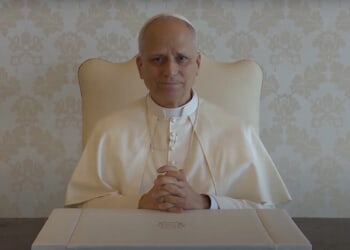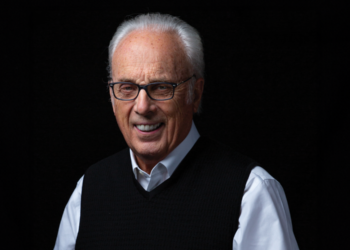President Donald Trump is fulfilling a once-in-a-lifetime mandate from the people to seal the border tight, deport criminal aliens, and return the country to doing what past leaders failed to do: Put Americans first.
That includes adding additional questions to the U.S. citizenship test, saying the current test is “too easy.” While well-intentioned, this misses the mark. Instead of adding more questions, we should prioritize teaching foundational documents like the Constitution to help legal, patriotic immigrants become U.S. citizens.
If we want to strengthen our republic, we must move beyond basic 6-10 question tests and checkbox interviews.
True citizenship transcends difficult memorization of more civic questions that leaves applicants panicked in the interview room, reciting facts lacking meaning; it demands instilling a deep grasp of America’s founding principles, values, and the truths that built its exceptionalism, turning privilege into profound, heartfelt belonging and patriotism. You gain this through a deep understanding of what makes us Americans, not through memorizing a set of civic questions and answers.
While the U.S. citizenship test has switched back and forth between versions — hardened in 2020 with 128 questions (study all, 20 asked, 12 correct needed), eased in 2021 back to the 100 questions (study all, 10 asked, 6 correct needed), a 2022-2024 redesign scrapped in December 2024 due to concerns it might be too difficult for applicants, and now set for toughening under the 2025 Trump administration with the 2020 format plus a photo-description speaking test — this endless messing around misses the mark entirely.
Citizenship isn’t just another government form or a bureaucratic milestone like getting a driver’s license. And yet, too often, that’s exactly what the process has become: a practical next step for legal immigrants seeking a greater sense of security and legitimacy in American society. What’s missing is meaning.
We should be asking a different question altogether — not “How hard or easy the test is today?” but “Do these future Americans understand WHY America became a beacon of hope? Do they understand the foundation that guarantees our rights, along with the responsibilities to safeguard them, so their own children can enjoy the same freedoms they benefit from today?
It’s not about testing knowledge of historical dates or how many stripes are on the flag. That’s surface-level. We need to go deeper. The naturalization process should be an opportunity for civic awakening — for immigrants to learn not just what America is, but why it is the way it is. What forces shaped this country into a global symbol of freedom? What values have made it resilient, unique, and inspiring?
It’s easy to assume why someone wants to become an American. Freedom, opportunity, safety — we know the reasons. But do we, as a nation, take the time to explain why these things exist in the first place? Do we help new Americans understand that this country was built on biblical truths — not perfection — but principles and values so powerful that people have crossed oceans to be part of them?
If we shifted our focus from making the test harder to making the process meaningful, the test wouldn’t need to be a hurdle. It would be a natural result of a meaningful journey — one rooted in education about the Constitution, democratic responsibility, individual liberty, and the sacrifices made to preserve them.
When future Americans truly understand America’s founding principles, it will move them. Citizenship becomes more than just another immigration process — it becomes a heartfelt commitment to a legacy. They begin to honor their oath, let go of divided loyalties (dual citizenship), and fully embrace what it means to be American.
If we want to strengthen our republic, we must move beyond basic 6-10 question tests and checkbox interviews. Instead, we should cultivate a real sense of belonging by teaching the Constitution, the Bill of Rights, and the values that make this nation so unique. When people connect with that truth, appreciation follows, passing the test becomes a natural outcome, not the end goal — and citizenship is redefined to what is meant to be.
America doesn’t need a harder test to officially welcome naturalized American citizens. It needs a citizenship awakening, one that reflects the values we say we stand for and invite new citizens not just to live here, but to love and protect what makes this country worth choosing in the first place.
READ MORE:
House Democrat Puts Guatemala First
Tech Companies Are Laying Off Americans to Replace Them With H-1B Workers, Vance Warns
Vanessa Faura is the Director of Programs and Engagement for the Foundation for the Restoration of America, which prepares legal immigrants for naturalization with its Citizenship Masterclass

![Man Arrested After Screaming at Senators During Big Beautiful Bill Debate [WATCH]](https://www.right2024.com/wp-content/uploads/2025/06/Man-Arrested-After-Screaming-at-Senators-During-Big-Beautiful-Bill-350x250.jpg)














